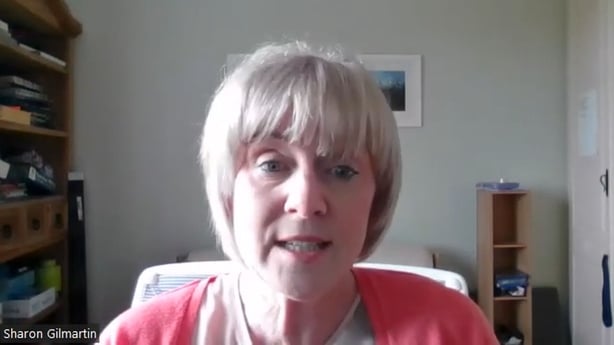The mother of a boy who spent four months in hospital last year, as there was nowhere else for him to go, has described the experience as "the hardest time of our lives".
Sharon Reynolds has spoken about how she was told her son Rian, who is autistic, was deemed not suitable for Child and Adolescent Mental Health Services (CAMHS), and was left in the hospital as he waited for a place in a residential care setting despite being "very physically healthy".
Her story comes as a the latest Children's Ombudsman report shows that some parents are having to leave their children in hospitals because they cannot get the vital support to care for them at home.
The report, titled 'Nowhere to Turn', also gives examples of how some children with complex disabilities are left in inappropriate settings for too long.
It found that in some of the most extreme cases, three children spent 368, 205 and 107 days in hospital when there was no medical requirement for them to be there.
Ms Reynolds said: "We had hoped he would get into CAMHS but we were told CAMHS was not suitable because he had a diagnosis," she said.
She added that despite her son being "very physically healthy" it took four months to get the support he needed and be moved to a residential care setting.
"It was the hardest time of our lives really," she said.
"We didn't know what was going to happen. My husband did nights, I would do days and my sister-in-law helped me out because he was a child.
"He is a minor. Someone had to be in hospital with him all the time."
She said everyone agreed, from the nursing staff to management that it was not the right place for their son.
"But where was? There wasn't anywhere for him to go...he just had to stay in hospital," she said.
Ms Reynolds also outlined the physical and emotional toll it took on the family.

"I was also conscious that Rian was taking up a bed in an acute paediatric ward when he wasn't physically sick and I felt bad about that," adding she had no choice.
While she has since secured a place for her son in a residential centre, she is aware of other families in similar situations, waiting for their children to be moved from hospitals to more suitable settings.
She said while it is not an easy problem to fix it would help if there was "somewhere like CAMHS" where these children could go until a plan is formulated.
"We all want our children in our lives, we want them in our lives as much as possible. Our son is everything to us."
Damien McCallion, Chief Operations Officer at the HSE acknowledged that there is "fair criticism" in the report by the Children's Ombudsman and the HSE has not completed all of their recommendations.
He said that since they received the draft report they have "accelerated" work to make sure the recommendations are implemented but added that some require policy considerations.
The HSE has also committed to carrying out an audit in hospitals from next week to assess how many children are being kept there beyond medical need.
Mr McCallion also said that they are renewing efforts to support parents in these situations by trying to increase capacity in their systems in terms of respite, overnight and daycare.
He said this is being done in the face of significant challenges like staffing issues.
"Our teams are going to work hard to try and support parents as best we can and using the analysis from the work to identify the kids most at risk to support those families where the need is greatest," he said.
The Children's Ombudsman says this will help but it should have happened sooner to identify these issues.
He is also calling for measures within the government's upcoming disability action plan to ensure there is funding in place to support these children and that they won't be failed again.







